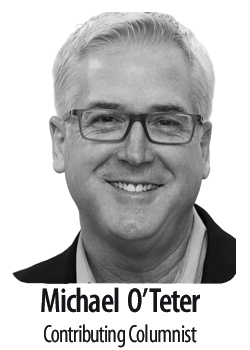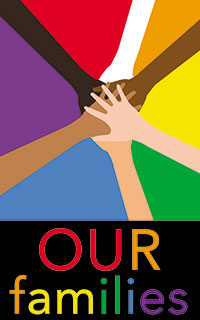Showing up for the LGBTQ youth of North Texas
 At the end of the day, LGBTQ youth need adults to do the same thing that you expect your plumber, contractor or repair-person to do: They need adults to show up.
At the end of the day, LGBTQ youth need adults to do the same thing that you expect your plumber, contractor or repair-person to do: They need adults to show up.
Growing up can be hard for any child, but LGBTQ youth face greater risks. They’re twice as likely to have been physically assaulted, kicked or shoved. They’re more likely to experiment with alcohol and drugs. They represent 40 percent of the homeless youth population.
The Trevor Project’s 2020 National Survey on LGBTQ Youth Mental Health states that 68 percent of their respondents reported symptoms of generalized anxiety in the past two weeks; 48 percent had engaged in self harm. And 40 percent had considered suicide in the past year.
 Of those respondents who identified as transgender or non-binary, the percentages in each area were even higher.
Of those respondents who identified as transgender or non-binary, the percentages in each area were even higher.
COVID-19 has made “social distancing” necessary, but while young LGBTQ people continue to adjust to the pandemic, some are dealing with increased anxiety and stress. For them, there may be additional challenges and risks from limited access to other LGBTQ youth and community support, lack of in-school counseling and, for some, the difficult circumstances of quarantining with unsupportive family members.
Adults “showing up” can make a difference.
The Family Acceptance Project notes that the presence of a supportive family member can make LGBTQ youth up to 92 percent more likely to believe that they can grow up to be a happy adults. The Reach Institute’s 40 Development Assets reinforces this, reporting that young people who have three or more caring adults (besides their parents or guardians) who support them feel happier and more hopeful, do better in school and are less likely to rely on drinking, smoking or drugs to feel good or fit in. And in 2019, Trevor Project research affirmed that LGBTQ youth who have ONE accepting adult in their life are 40 percent less likely attempt suicide.
Unfortunately, 39 percent of LGBTQ youth say they don’t have an adult in their life who supports them in any significant way.
I have a message for those LGBTQ youth reading this: Adults in our community are ready to stand with you.
I am proud to work for an organization — Big Brothers Big Sisters — that pairs young people with mentors, carefully screened and trained adults who are passionate about defending the potential of all youth of all genders, all orientations, all races, all religions, all incomes. We match youth with adults who see their potential and want to stand with them.
Big Brothers Big Sisters is a place where adults show up.
Our mentors and mentees spend one-to-one time together about once a week, at least twice each month, for at least a year. Many of these friendships remain connected for life. Some hang out together around the community, going out to eat or to the mall, playing catch in the park, etc. Others see each other during lunchtime at school. And others connect each week on line, texting, FaceTime, calling one another, etc., through our new E-Mentoring program opportunity.
Even during the COVID-19 pandemic all of our mentors and mentees find ways to stay connected virtually. That engagement is as important now than ever, when we have to be physically distant to remain safe.
Getting involved with Big Brothers Big Sisters involves a few important steps — an application (go to bbbstx.org/lgbtq), an interview and some patience as our staff work hard to find the right match for each person.
Our goal is to create one-to-one friendships that are safe, strong and long-lasting. So we consider all sorts of factors when bringing people together. Maybe that’s your LGBTQ identity, but it may also be your love of sports, reading or food. Or maybe it will be based on your education and career goals. Regardless, we want to find the right mentor for you.
For those adults reading this article, here’s something to consider: Mentors can change a youth’s life trajectory by being consistently present, listening and offering affirmation and exposing youth to new experiences and opportunities.
There may be LGBTQ youth who need your help in finding their way into a mentoring relationship. If you are an adult who knows an LGBTQ youth who could use an extra grown-up in their corner, please send them our way. And if you are someone who wants to join the many other LGBTQ and ally adults who are “showing up” for youth, consider becoming a mentor yourself. Simply go to our website and start the enrollment process.
Don’t think COVID-19 will stand in your way, as we are now able to take your application, complete your interview AND introduce you to your new mentee ALL online. You have what it takes to be a mentor IF you are willing and able to show up. Join us!
Michael O’Teter is the chief program officer for Big Brothers Big Sisters Lone Star, the nation’s largest Big Brothers Big Sisters affiliate. He has been with BBBS for 19 years, and he’s served as a volunteer mentor, as well. His current mentee, Leo, will be a junior in high school at the Collegiate Academy in Hurst. Mike and his husband, Clinton, live in Dallas.
